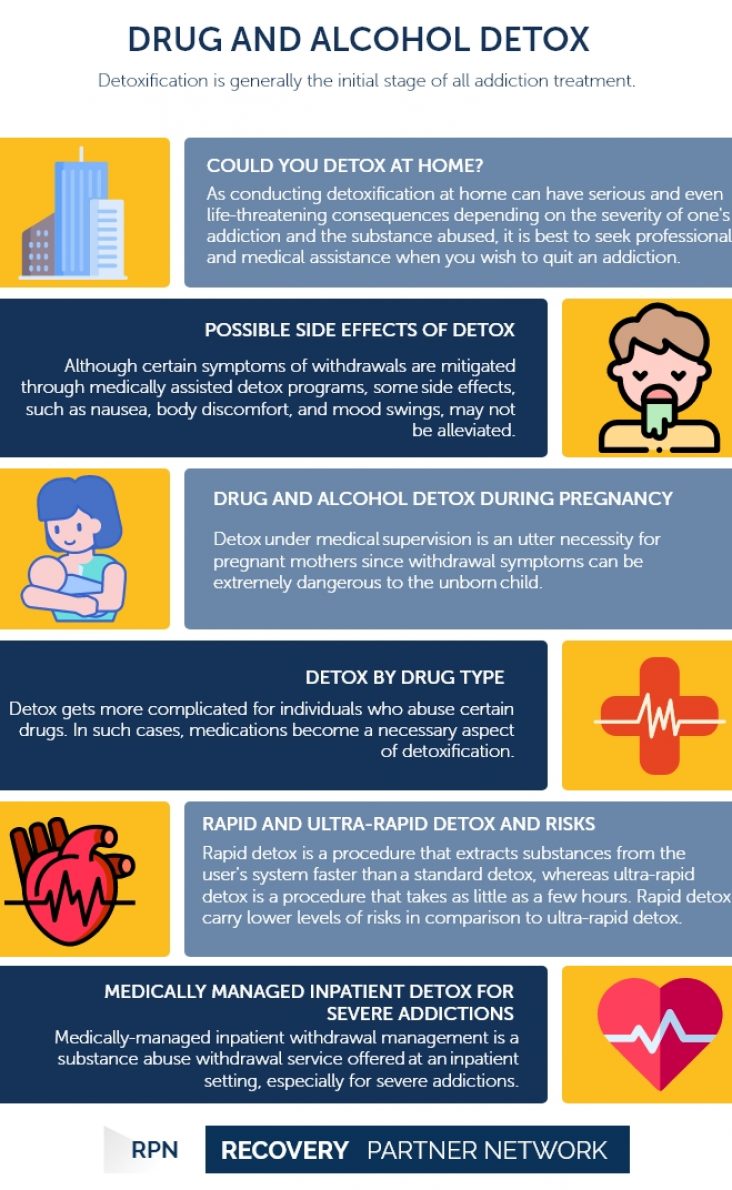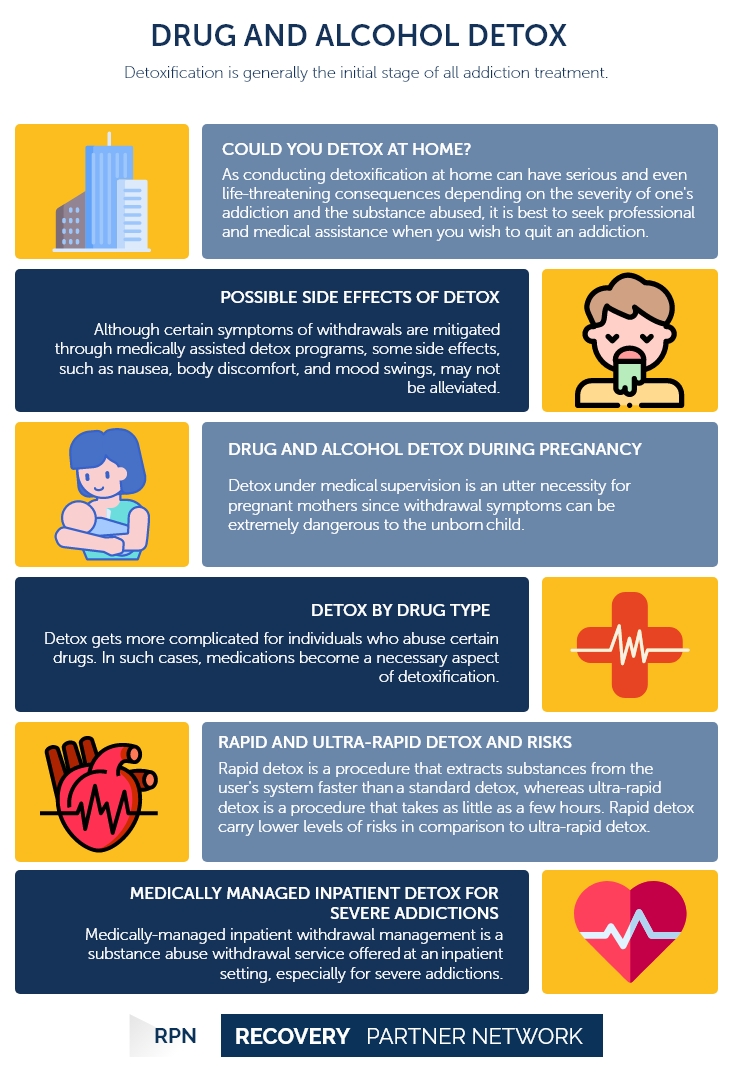Detox, or detoxification, is the method of allowing the body to eliminate the addictive substances within. The main goal of detoxification is to flush out the substance of abuse in the most effective and safest way possible while minimizing the possibilities of a serious health complication.
Detoxification can be carried out through a variety of methods such as tapering down method, medication-assisted detoxification, or simply going cold turkey. The method of treatment mostly depends on the severity of a patient’s addiction, the substance of abuse, a patient’s medical history, and polydrug abuse. The duration of detoxification may vary from patient to patient.
Detoxification, through the use of medications, help alleviate severe withdrawal symptoms and minimize the possibility of a relapse. However, it can take days or even months to get through withdrawal symptoms for most substances. The length of withdrawal depends on many variables, including:
- The dose generally consumed
- The duration of addiction
- The severity of the addiction
- Polydrug abuse
- Method of abuse (snorting, injecting, smoking, or swallowing)
- Family history
- Underlying mental health conditions
- Genetic makeup
- Medical conditions


